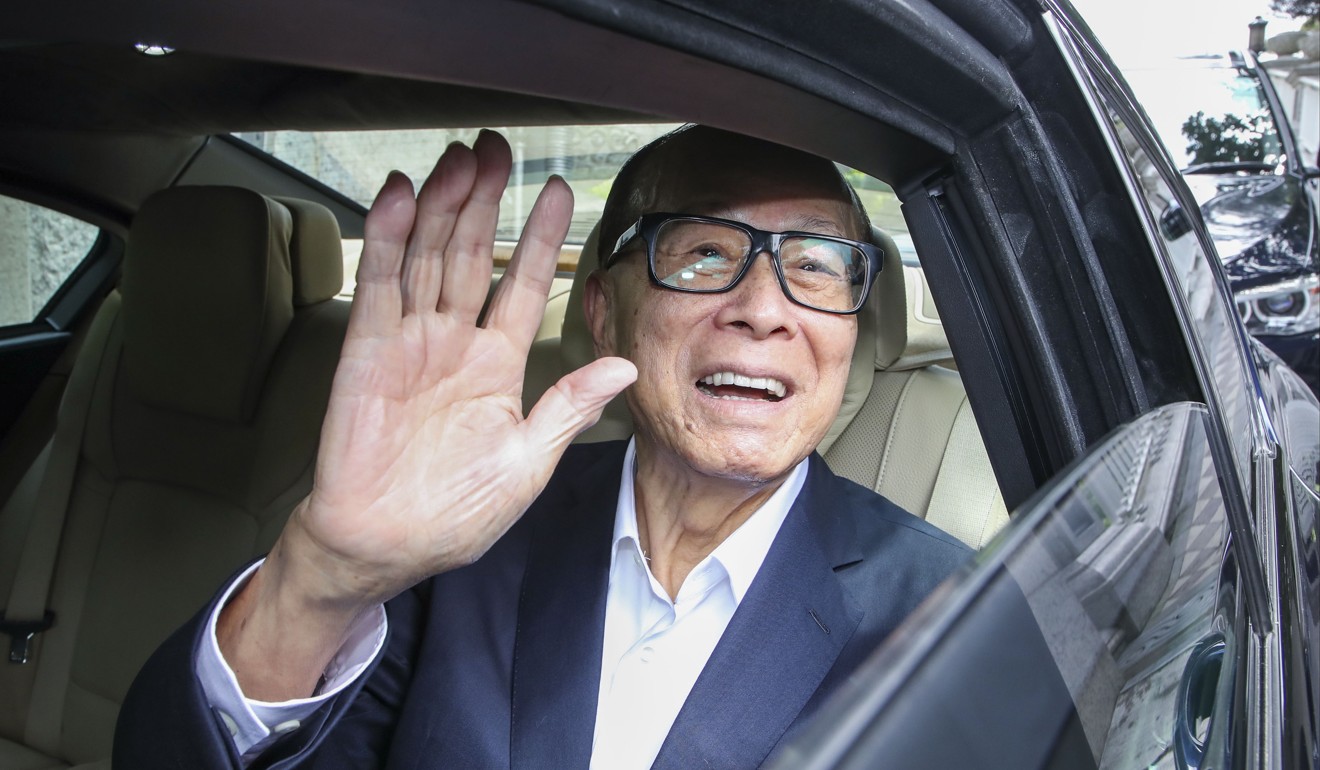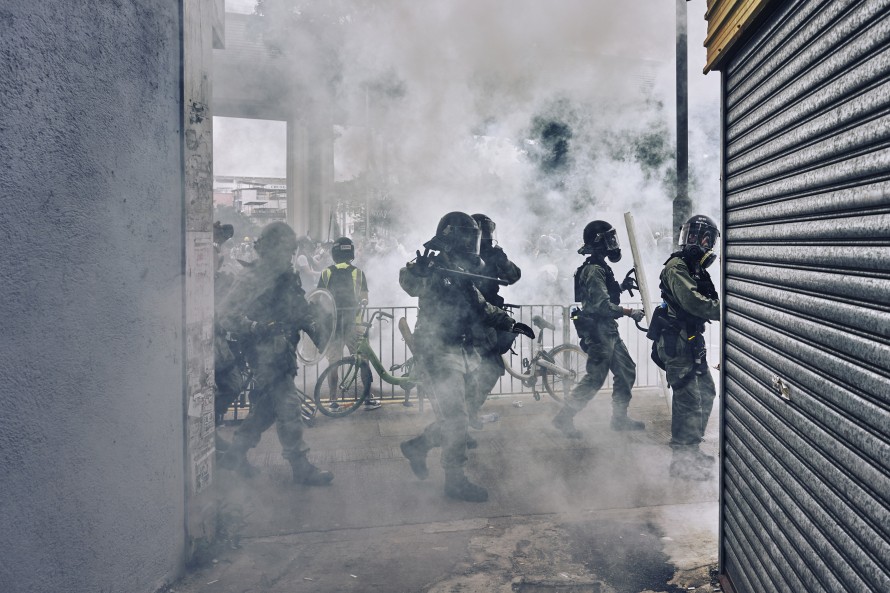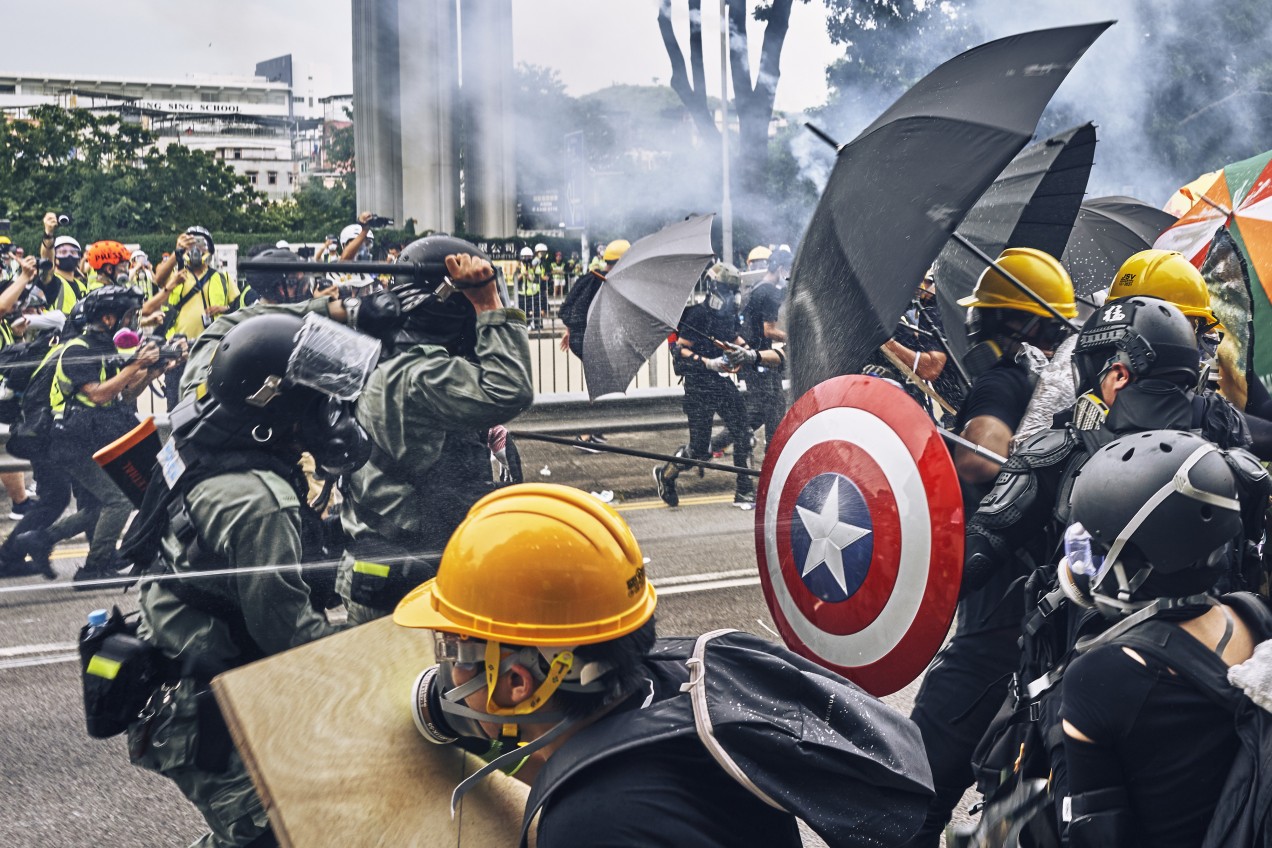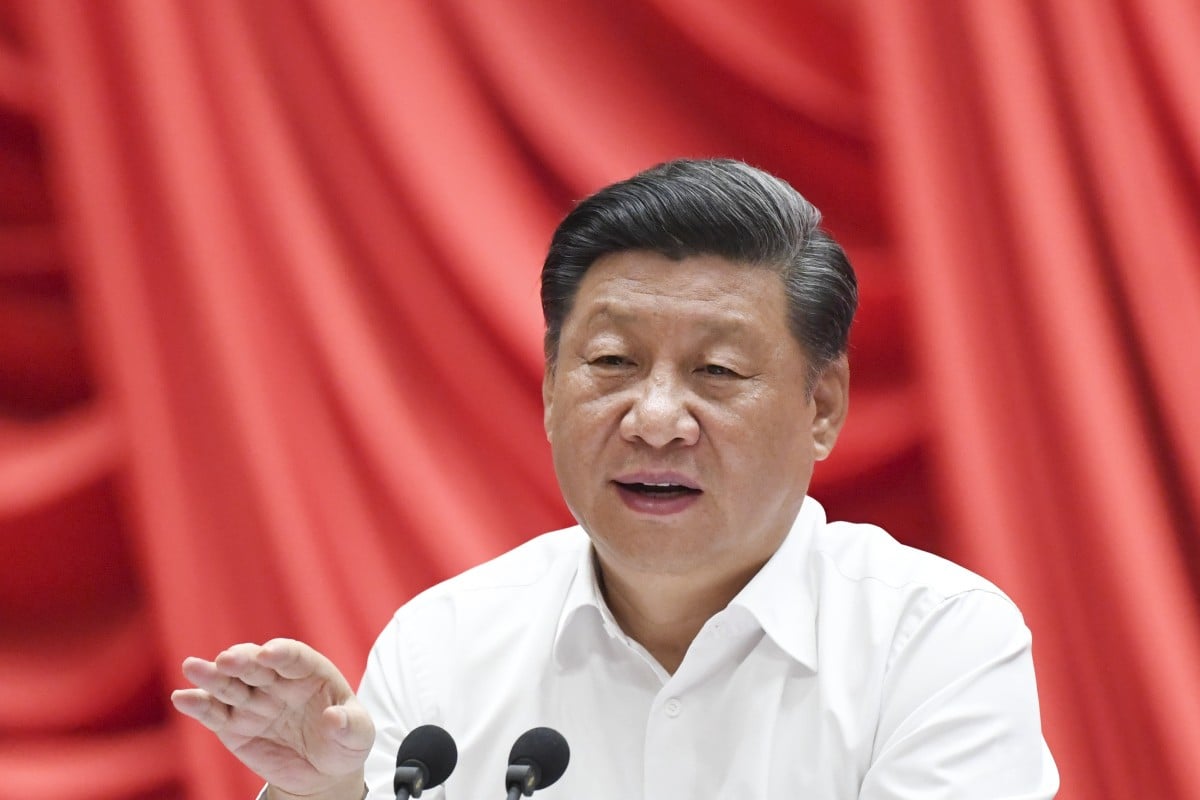The date which has both Hong Kong and Beijing on edge For months, October 1 has loomed over the mass pro-democracy demonstrations in Hong Kong, as a whispered deadline for the ruling Chinese Communist Party to take action to end the unrest......... On that day, Beijing will be hoping to project an image of national strength and unity with a military parade through the city to mark 70 years since the founding of the People's Republic of China......... It's a significant milestone that China's leaders will not want overshadowed by protests in Hong Kong, which have grown in intensity since mass demonstrations began in June....... 2021 will be the 100th anniversary of the Communist Party. It's also the self-imposed deadline for President Xi to deliver some of his signature achievements, such as eradicating all poverty and raise living standards to new heights. ........ In the last 20 years alone, China's wealth per adult has quadrupled, while its GDP has gone from just $150 billion in 1978 to over $12 trillion in 2018. Just over 30 million people are still living in poverty in China, down from 770 million 40 years ago......
As their options dwindle, Beijing may be forced to grin and bear a Hong Kong spoiler to their national day Three commentaries published by state media single out unaffordable housing as a ‘root cause’ behind young people taking to the streets in anti-government protests ......... Cathay Pacific began cracking down on employees taking part in illegal protests and reshuffled its top management after the city’s flagship carrier came under severe criticism for its hands-off approach; and the MTR Corporation started closing metro stations and asking police to take action after the rail operator was accused of allowing protesters to use its network to their advantage. ........
Exclusive: The Chief Executive 'has to serve two masters' - HK leader Carrie Lam – full transcript
The new battle in Hong Kong isn’t on the streets; it’s in the apps Activists are using Airdrop, livestreams, and innovative maps to keep their protest alive. But the authorities have plenty of tech of their own. ............. Hong Kong is famous for its souk-like electronics malls, and it’s blanketed with high-speed internet. So when protests broke out in June over plans to implement a controversial extradition law—which would see Hong Kongers accused of crimes turned over to mainland China’s notoriously opaque justice system—it was natural that many people turned to online services for more information and guidance............. Everything from supplies of food and water to press conferences are put together in the chat app Telegram ......... LIHKG, a Reddit-like forum that is limited to local ISPs, provides a sandbox of ideas where a network of anonymous citizens can exchange memes, protest schedules, and tactics. Online polls often dictate the location of the next traffic-disrupting flash mob. .......... a small army of journalists and activists have been live-streaming everything from major marches to minor spats with police. The raw videos tap into local media habits—
Hong Kong's Protestors Have Their Own Special Slang. Here's a Glossary of Some Common Terms Investors would flee at the first sign of any military boots hitting the streets, something Beijing can't risk as the domestic economy slows.
....... As their options dwindle, Beijing may be forced to grin and bear a Hong Kong spoiler to their national dayAs their options dwindle, Beijing may be forced to grin and bear a Hong Kong spoiler to their national day Three commentaries published by state media single out unaffordable housing as a ‘root cause’ behind young people taking to the streets in anti-government protests ......... Cathay Pacific began cracking down on employees taking part in illegal protests and reshuffled its top management after the city’s flagship carrier came under severe criticism for its hands-off approach; and the MTR Corporation started closing metro stations and asking police to take action after the rail operator was accused of allowing protesters to use its network to their advantage. ........
tycoon Li Ka-shing made when he called young people the “masters of our future”.
......... state media specifically endorsed a proposal by the Democratic Alliance for the Betterment and Progress of Hong Kong, the city’s largest pro-Beijing party, for Chief Executive Carrie Lam Cheng Yuet-ngor to invoke the Lands Resumption Ordinance and take back large swathes of rural land lying unused as a quick option to tackle the shortage of land for housing. ....... The Xinhua commentary identified the inability of young people and low-income groups to afford homes and share the city’s economic success as an underlying cause of the social unrest......... A bylined commentary on the People’s Daily website took a tougher line, saying: “For the sake of public interest … it is time developers show their utmost sincerity instead of minding their own business, hoarding land for profit and earning the last penny.” ........ The Communist Party mouthpiece went on to state: “What is being responsible to Hong Kong’s future? What is showing humanity and providing a way out to the young people? This is the way.”......This was a direct counter to tycoon Li Ka-shing’s remarks last weekend, when he described the city’s youth as the “masters of our future” who should be “provided a way out” of the protest crisis.................. City University academic Ray Yep Kin-man said the state media commentary showed Beijing’s understanding of local grievances was based on economic factors......... “But they are not the sole factors, as the calls for universal suffrage, freedom and democracy are clear in the current situation,” he said, adding that Beijing’s input was also blurring the line in terms of “interference” in the city’s affairs.Exclusive: The Chief Executive 'has to serve two masters' - HK leader Carrie Lam – full transcript
The new battle in Hong Kong isn’t on the streets; it’s in the apps Activists are using Airdrop, livestreams, and innovative maps to keep their protest alive. But the authorities have plenty of tech of their own. ............. Hong Kong is famous for its souk-like electronics malls, and it’s blanketed with high-speed internet. So when protests broke out in June over plans to implement a controversial extradition law—which would see Hong Kongers accused of crimes turned over to mainland China’s notoriously opaque justice system—it was natural that many people turned to online services for more information and guidance............. Everything from supplies of food and water to press conferences are put together in the chat app Telegram ......... LIHKG, a Reddit-like forum that is limited to local ISPs, provides a sandbox of ideas where a network of anonymous citizens can exchange memes, protest schedules, and tactics. Online polls often dictate the location of the next traffic-disrupting flash mob. .......... a small army of journalists and activists have been live-streaming everything from major marches to minor spats with police. The raw videos tap into local media habits—
many people leave live streams playing in the background while they cook dinner or hang out with friends—and help create a sense of solidarity and belonging, even among those who are not on the streets themselves
............ Supply chain: Thanks to messages on Telegram and information sent via AirDrop, protesters are able to get supplies to the front lines through chaotic scenes. ........ “We disregard quality and framing, but we’re in the middle of the protesters and even the police, and people get really immersed in the scene,” she says. “The audience doesn’t want well-packaged shots—they want to feel what it’s like to be on the ground, in the most dangerous situation.” ........“A lot of people have told me it was like a VR experience of getting beaten.”
.......... (“No one knew where the police were or how they could get to an escape route,” he told me. “So our team began planning to map out the next big rally the following week.”)......... Now Orca and his team publish dozens of maps during large demonstrations, updating positions with colors to show the location of police, “thugs,” and protesters, plus icons to signify first aid, rest, and supply stations. All of this is put together by on-the-ground volunteers who draw the information out on a blank map on their iPads, and send it to an “integrator” who compares the data with news from live streams and television stations before putting it all together and sending it out over Telegram or Apple’s AirDrop file transfer service. During one rally, an estimated 600,000 people downloaded maps put out by Orca’s team, just one of three mapping services created during the protests. ........... Then, three weeks after she watched the train station attack, Alice decided her contributions needed to become more direct. During one of the most violent weekends so far, she joined the crowd, carrying a rucksack filled with supplies: bandages, water, snacks, and filters for gas masks. When she saw a call on Telegram, she rushed forward toward police lines for the first time, opened her bag to those in need, and quickly retreated, checking Orca’s maps to avoid running into police......... She was dressed in what has become the uniform among demonstrators: black from head to toe, her face obscured by a black surgical mask and a black baseball cap............."This moment is our last chance to fight for Hong Kong, or the next generation won’t even know what privacy is."
........... “In the past few months people have educated themselves incredibly quickly on end-to-end encryption, only buying single-use transit cards, and the dangers of widespread surveillance” ......... many types of data Hong Kong’s telecommunications companies do not consider to be personal and protected, including a user’s geolocation and IP addresses, as well as the information on websites visited. This interpretation, which was made privately by the companies themselves and has not been challenged in court, means that police do not need a warrant to request, say, a list of subscribers who were in a certain place at a certain time........... Information collected by Hong Kong authorities could also be handed over to China, Tsui added, since there is no formal agreement defining what can and cannot be shared............. Alice does not even know the real names of several friends she’s made at the protests. When they message on Telegram, they use their aliases—all English pseudonyms. Even though they are anonymous, anyone who is arrested is cut out of the group for fear that police could compromise their phones............. With no end in sight, Lam has considered invoking emergency powers, according to local media. One of her first targets would likely be the apps that protesters use to organize. The mere suggestion was so divisive that members of Lam’s cabinet warned her against the move, and the Hong Kong Internet Service Providers Association declared that “any such restrictions, however slight originally, would start the end of the open Internet of Hong Kong.”..........The Chinese government’s concern is that the internet is also the most likely way the Hong Kong protests could spread to the rest of the country.
........ After Lam’s announcement that she would withdraw the extradition bill, posts on Chinese social media wondered why those elsewhere in China face jail time for even a hint of dissent. ......... amid attempts by the Chinese government to deter protesters by releasing viral clips on Twitter threatening a military crackdown, there is little sign Hong Kongers are cowed. Alice feels that their collective efforts are leveling the playing field between the government and demonstrators. ......... “The government uses an old playbook, but we have created whole new ways of resisting. And if we didn’t stand up and [we] let Hong Kong become just another Chinese city, all that creativity would be snuffed out.”Avoid irresponsible remarks on Hong Kong, China warns UK MPs
Is it safe to be in Hong Kong? Against all odds the answer is still a strange ‘yes’
China’s soft power failures may cost Hong Kong its trade status
Denise Ho: Hong Kong has reached 'a point of no turning back'
Op-Ed: Why so many Chinese students can’t understand the Hong Kong protests It’s hard for Americans to understand why so many Chinese students attending school in Western countries have turned out in recent days to express support for the Chinese government in its current conflict with Hong Kong protesters. The Chinese students have tried to shout down demonstrators at pro-democracy rallies in the United States, Canada, Australia and the United Kingdom....... I don’t agree with the students’ pro-Beijing sentiments on Hong Kong, but I think I understand them. They remind me of myself when I first came to the U.S. to study in 2009........ Soon after arriving, I saw protests in front of the Chinese Embassy in Washington, D.C., organized by Tibetans in exile, but I couldn’t make sense of them. Weren’t Tibetans happy with the high-speed trains and nice buildings the Chinese had built? Weren’t Tibetans making more money doing business with the Chinese? ....... it took me several years to be able to understand on an emotional level the sufferings of many Tibetans in China. ........ My thinking about Tibet had been fully shaped by Chinese propaganda, which held that China had freed Tibetans from serfdom and brought them prosperity and happiness. I had no access to contrary opinions because of government censorship, so I couldn’t fathom that Tibetans were self-immolating to protest the severe suppression of their language, culture and identity........ Studies show that overseas Chinese students — totaling around 1.5 million, including more than 300,000 in the United States —still rely on information from China’s heavily censored internet and media. That helps explain the fervor demonstrated by some of the anti-Hong Kong protesters. But it is deeper than that........ For those us who grew up in a system where information control is all-encompassing, processing ideas contrary to what we were taught and believed all our lives is not easy. It takes an innate curiosity, constant reading of uncensored information and self-reflective thinking — none of which are encouraged in China.......... Unlearning untrue information and the beliefs it engenders can take a lifetime. I left China a decade ago, but today I still occasionally question the truthfulness of certain knowledge I have — because I learned it in school in China........ When Chinese students step outside of China to study, they are struggling to adapt to a new education system, and are frequently confronted — in class, in daily life, and online — with assumptions that they have been “brainwashed by the Chinese government.” It makes some feel attacked and reaffirms what they were taught in China: The West is biased and hostile........





